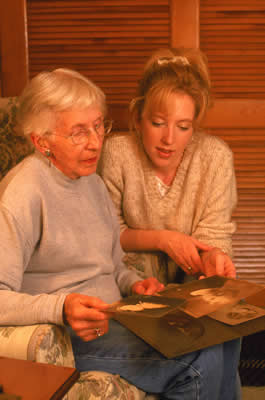KB Times
Katten & Benson, Your Elder Law Specialists
June 2009 - Vol 2, Issue 6
|
|
|
Did You Know?
|
- Tarrant County Probate Courts 1 & 2 each had 187 requests for court initiated guardianships in 2008
- Tarrant County Probate Court 1 currently monitors 1106 active guardianships
|
|
|
Guardianship Unraveled
|
 Guardianship--what a tough topic to address. I'm sure it's confusing for many of you, so today we'll try to outline some of the process.
Guardianship--what a tough topic to address. I'm sure it's confusing for many of you, so today we'll try to outline some of the process.
The Texas Probate Code is where you'll find the laws relating to guardianship. You can find this online, but trust me, it's pretty dry reading.
Guardianship is a legal process, and removes some of the constitutional rights of the person, known as a Ward.
Who Needs a Guardian?
Incapacitated adults need guardians (we will not address the issue of children at all in this discussion). An incapacitated adult is someone who, due to a physical or mental condition, is substantially unable to provide food, clothing or shelter for himself or herself; someone who is unable to care for one's own physical health or to manage their own financial affairs. It is not enough for a person to have an isolated incident, but there has to be a history of several months of not being able to manage these tasks.
Who Decides a Person Needs a Guardian?
The court makes decisions regarding guardianship. In large counties like Tarrant and Dallas, this duty is handled by the Probate Courts. In smaller counties, these cases are heard in the County Court at Law.
The process can be quite lengthy, and there are actually several different ways a case can get to court. An application has to be filed, and it must specify which rights are to be removed. A hearing is required, and the subject has the right to contest. The applicant has to prove the need for a guardian according to set standards.
At this point, the person filing the application has an attorney. The court appoints an attorney for the proposed Ward, who must represent the wishes of the proposed Ward. In some instances a guardian ad litem may be appointed. It is this person's job to represent what is in the proposed Ward's best interest.
Guardian of the Person
The guardian of the person manages the physical care of the incapacitated adult, including consent to medical treatment and where the person will physically live. The guardian of the person has to file an annual report with the court.
Guardian of the Estate
The guardian of the estate manages property and finances for the incapacitated adult. They can sell property, with court permission, they can collect debts and enforce obligations in favor of the Ward, they can bring and defend suits, and they can manage income and assets for the Ward's benefit.
The guardian of the estate has to file an Inventory with the Court to show assets owned by the Ward, and the guardian has to file an annual accounting with the court. Most actions of the guardian of the estate can only be completed with Court approval.
|
|
|
|
Guardianship Facts
|
 Guardianship can be an expensive proposition.There will be at least 2, and sometimes 3 attorneys involved, and they will all be billing separately for their services. If a guardianship is contested, costs can be even higher. Guardianship can be an expensive proposition.There will be at least 2, and sometimes 3 attorneys involved, and they will all be billing separately for their services. If a guardianship is contested, costs can be even higher.
If a person is appointed guardian of the estate, they will have to post a bond equal to the value of all liquid assets plus a year's worth of income. This is a protection, to minimize the risk that the guardian will disappear with the Ward's estate. And, this bond has to be paid every year.
As mentioned earlier, most transactions the guardian of the estate may make can only be done with Court approval. This means going to court, which means having an attorney, which means more expense.
Not just anyone can be a guardian. If you owe money to the Ward, you cannot be a guardian. If you've had a felony conviction, you cannot be a guardian. In situations where there are no qualified family members or friends, a private professional guardian might be appointed. The fees for a private professional guardian would be paid for out of the Ward's estate. If there is no estate, there are agencies that train and provide volunteer guardians in some areas. In Fort Worth this service is provided by Guardianship Services, Inc.
|
 |
|
|
Please feel free to share this newsletter with your friends, colleagues and clients (we never share our email list). We look forward to helping you and your clients with your long term care planning needs.
Sincerely,
|
|
Kim Olmedo, LCSW, CCSM, CSW-G
Elder Care Coordinator
Katten & Benson
|
|
|
|
|